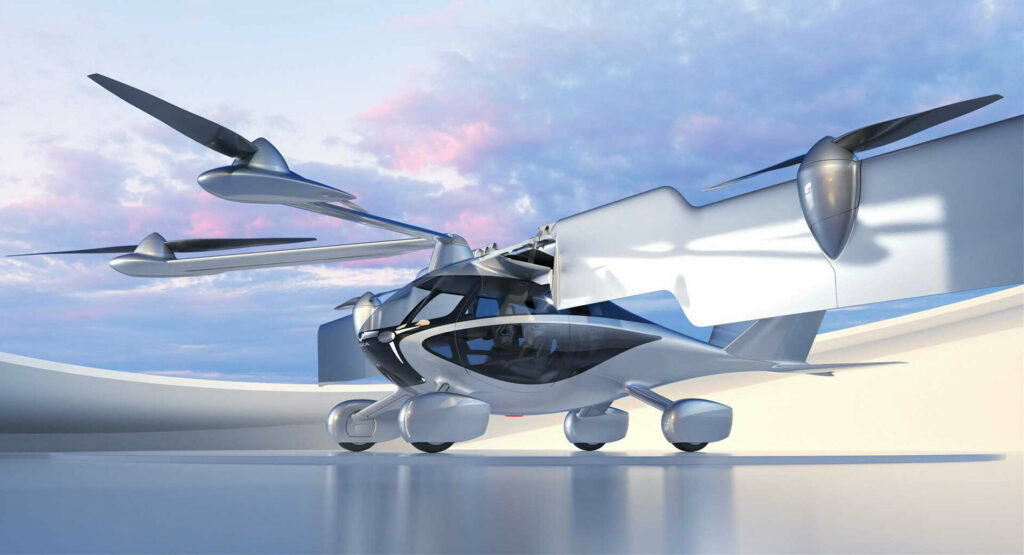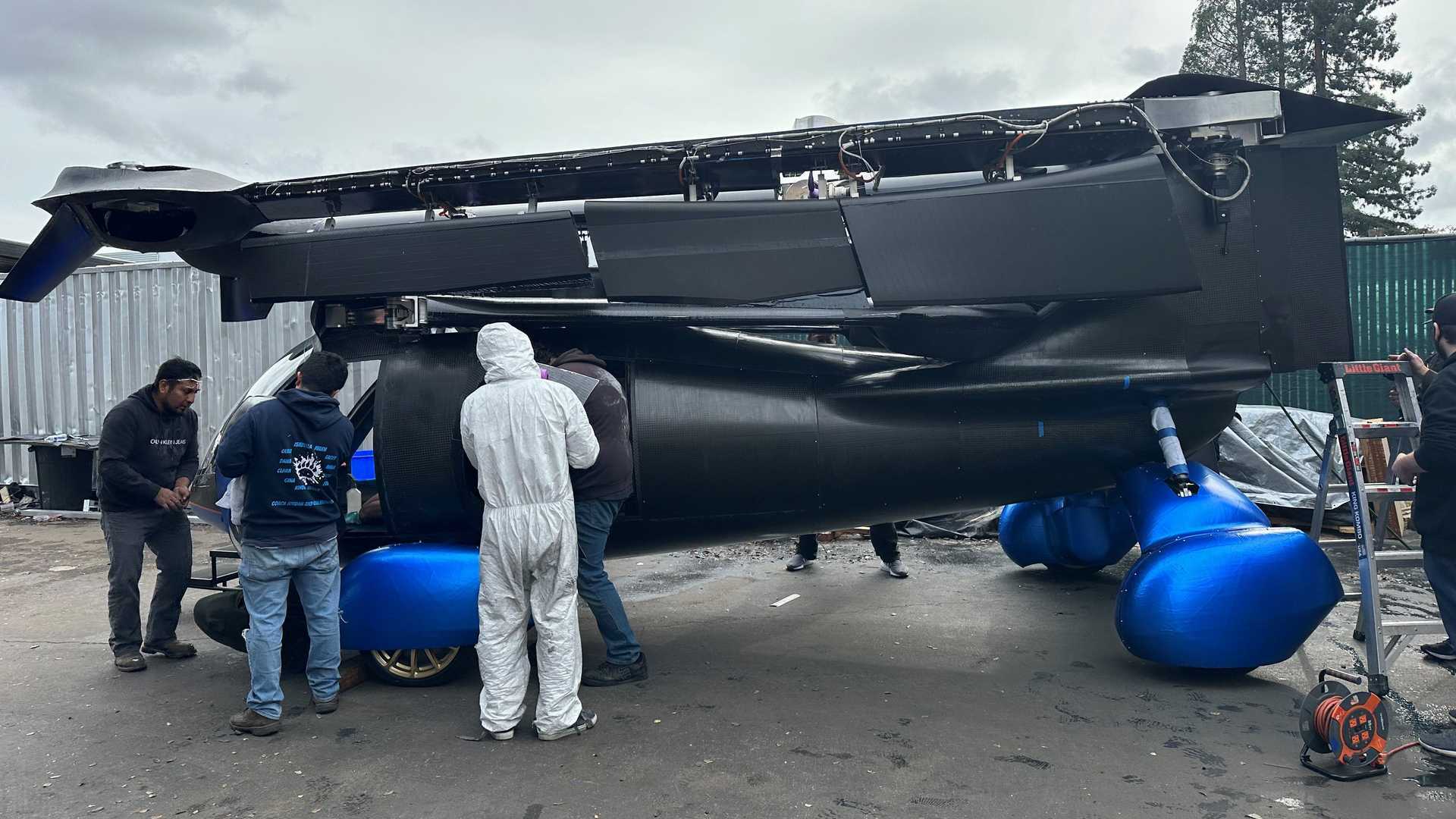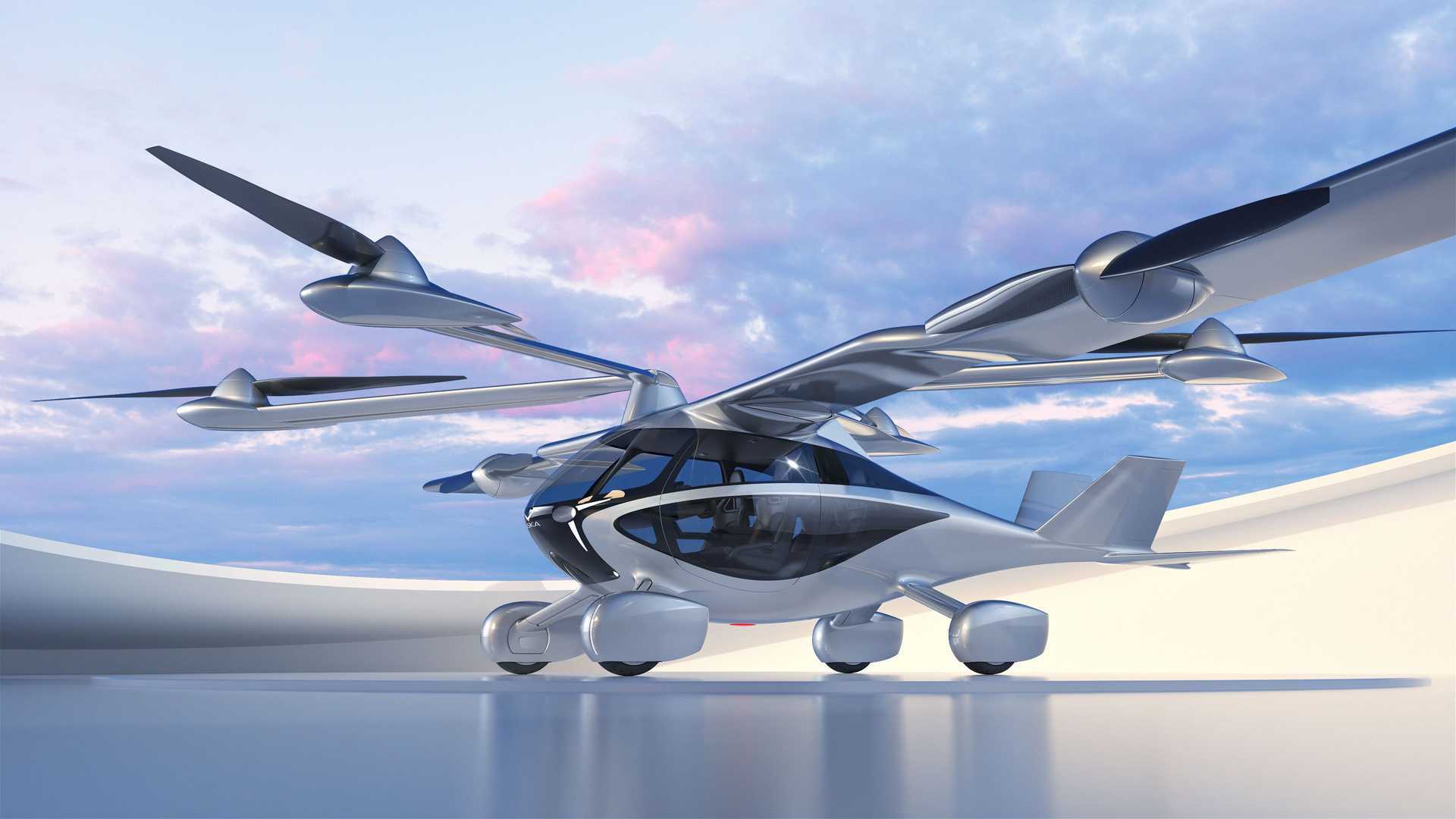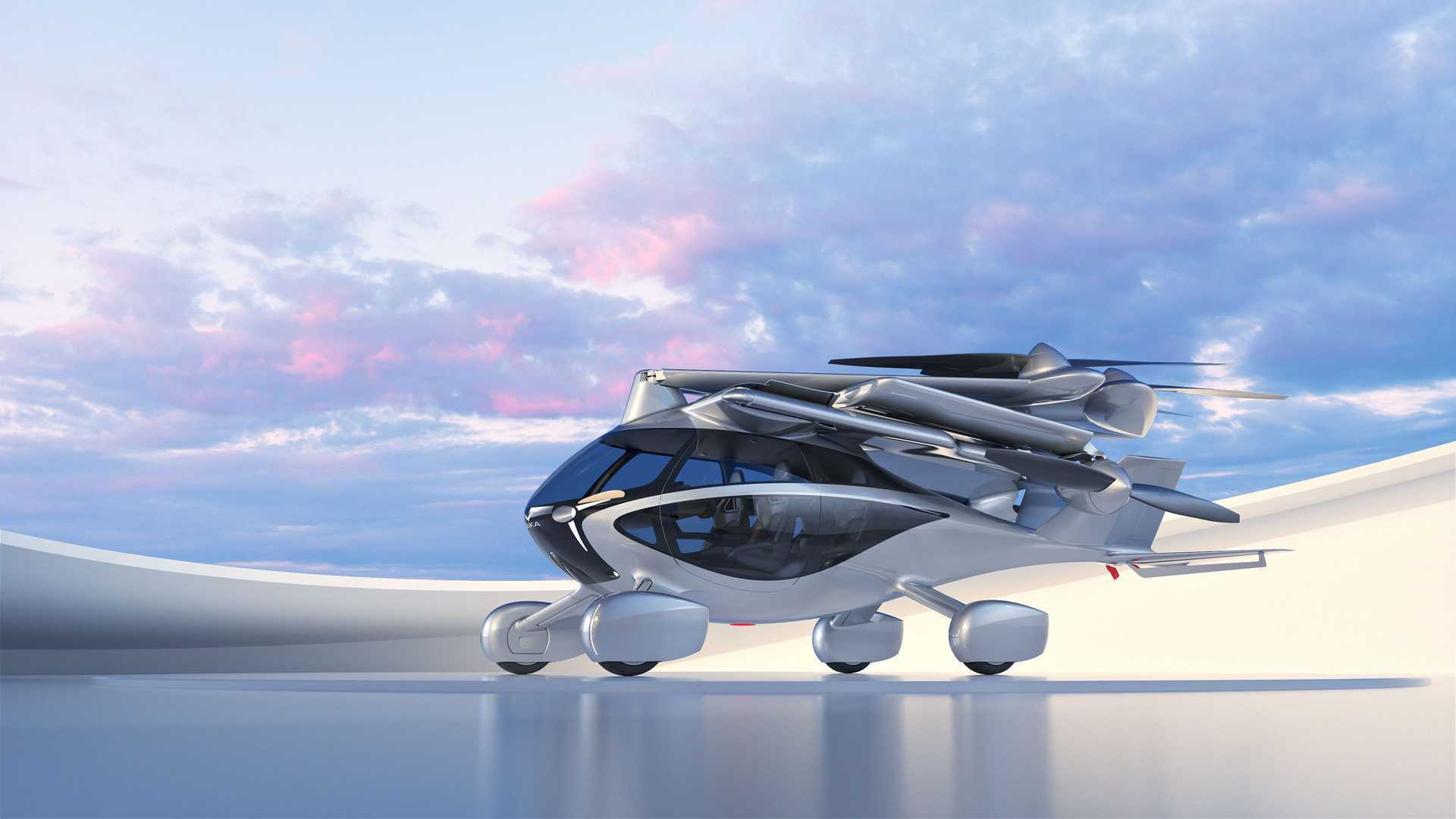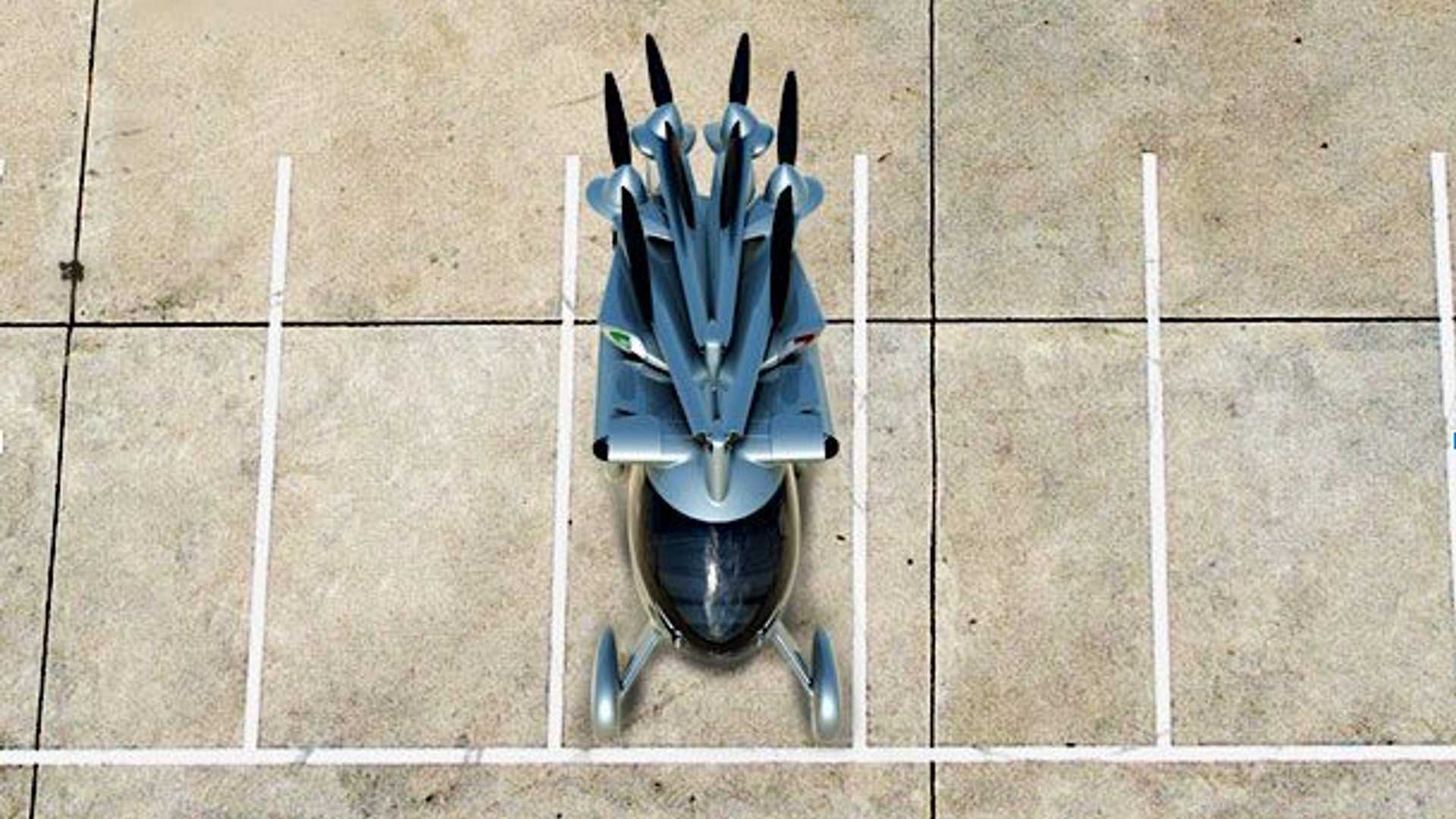The Consumer Electronics Show (CES) never fails to disappoint and one of the more intriguing vehicles presented at this year’s event is the Aska A5, an electric vertical takeoff and landing (eVTOL) vehicle.
The Aska A5 is roughly the size of a typical SUV and has been described as the first four-seater electric vehicle that can travel by road and up to 250 miles (402 km) by air on a single charge. While more of an airplane/helicopter than a traditional car, the A5 has wings and propellors that can fold away whenever it needs to be used as a car.
The company behind the eVTOL says it is powered by a proprietary power system combining lithium-ion battery packs with a petrol engine acting as an onboard range extender. It is unclear how much power the A5 has but Aska notes that it has four in-wheel electric motors to produce all-wheel drive traction while also improving aerodynamics and maximizing interior space.
Read: Stellantis To Build Archer’s Midnight Electric Flying Taxi In Georgia
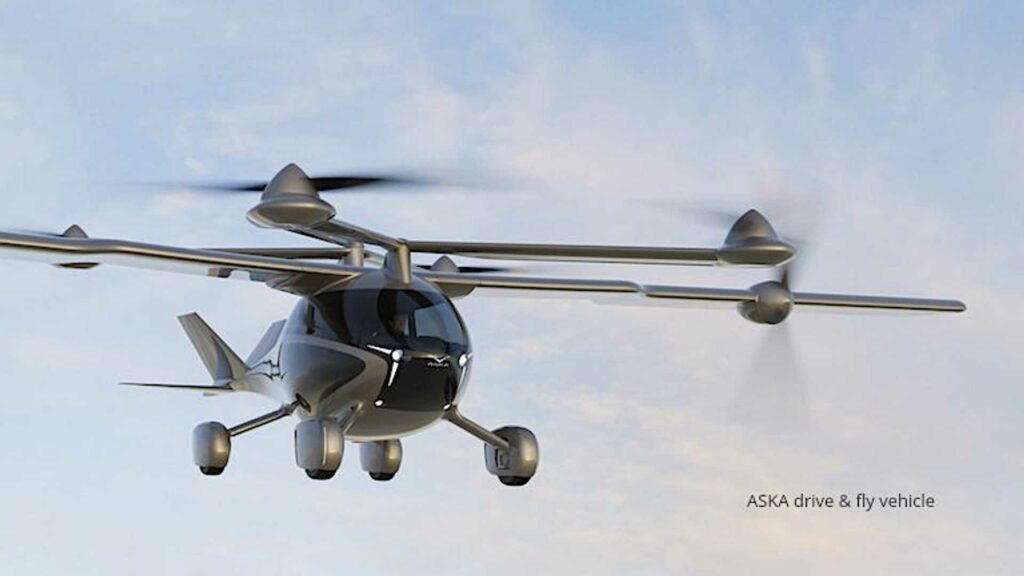
While the A5 can take off like a helicopter, it can also take off along a runway like a traditional airplane. When flying, the wings and six rotors unfold. Aska notes that the wing has been optimized for “gliding, smooth landings, and efficient energy consumption.”
“Our unveil at CES represents something that has never been accomplished in the world, but which humans have dreamed of for decades: a fully functional, full-scale prototype of a Drive & Fly electric Vertical Takeoff and Landing, a real flying car,” co-founder and chief executive Guy Kaplinsky described. “We’re making history with ASKA and defining the next 100 years of transportation. ASKA is positioned as a new generation vehicle that combines the convenience of an automobile with the ease and efficiency of VTOL and STOL flight. ASKA is a vehicle that addresses not only consumers, there is also significant business potential in emergency response use, military use, as well as on-demand ride-sharing mobility services.”
In addition to selling the A5 privately, Aska plans to launch an on-demand ride service in 2026 with a fleet of its eVTOLs.



